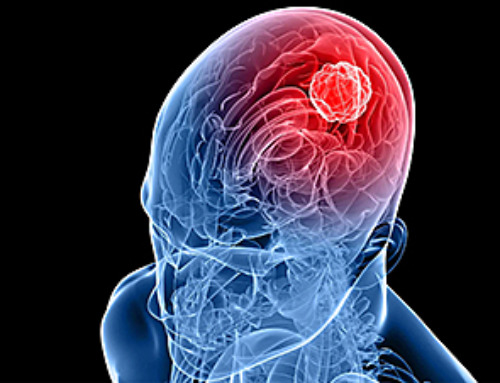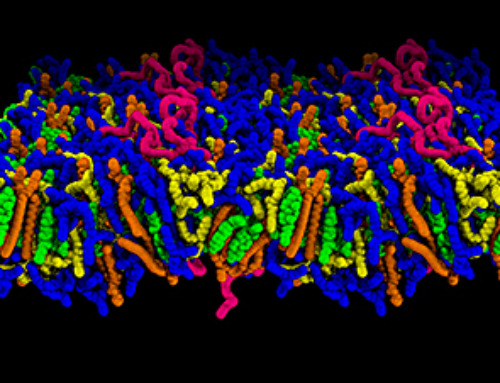Scientists identify key differences in immune responses to the AstraZeneca and Pfizer vaccines.
A recent study conducted by a team from SAHMRI and Flinders University in Australia has revealed significant variations in the way the AstraZeneca and Pfizer COVID-19 vaccines affect the immune system. The findings, published in Cell Reports Medicine, are part of the COVID-19 Vaccine Immune Responses Study (COVIRS) and were based on the analysis of the immune responses of 102 adults of various ages residing in South Australia, where there was no SARS-CoV-2 community transmission at the time of the study.
The participants in the study had their blood samples collected immediately after receiving each dose of either the Oxford/AstraZeneca or Pfizer/BioNTech COVID-19 vaccine, in order to evaluate their early immune response. Further tests were conducted 28 days after each immunization to measure the activity of B and T cells, both of which play a crucial role in the immune response. B cells produce antibodies, while T cells target and eliminate infected cells.
The vaccines are alike in the sense that they induce the immune system to recognize and protect against the SARS-CoV-2 virus, but they differ in how this is achieved. The Pfizer vaccine uses mRNA technology to induce host cells to produce the SARS-CoV-2 Spike protein, while the AstraZeneca vaccine uses a harmless virus (a chimpanzee adenovirus) to encode the Spike protein.
"After the first dose, we were surprised to find the Oxford/AstraZeneca vaccine elicits an unexpected memory-like response in the immune system, recognizing the vaccine as if it's something it's seen before," says Professor Lynn, from the College of Medicine and Public Health at Flinders University.
"This response is targeted against the adenovirus vector in the vaccine, not the Spike protein and the intensity of this response correlates with the expression of proteins that act as a pre-cursor to thrombosis, or blood clotting. While Vaccine-induced immune thrombotic thrombocytopenia (VITT) is an extremely rare side effect associated with the Oxford/AstraZeneca vaccine that none of the participants developed during the study, this research offers a potential explanation for the connection between the Oxford/AstraZeneca vaccine and the cases of VITT that have been reported."
The study also found those who'd only had two doses of the Oxford/AstraZeneca vaccine generally produced lower amounts of antibodies and less of a specialized type of T-cell that helps with antibody production; compared to those who had two doses of the Pfizer/BioNTech vaccine.
However, this was rectified once they had their third booster dose of an mRNA vaccine, illustrating the importance of booster doses. The study added evidence to the notion that COVID-19 vaccines offer some people more effective protection than others.
The reasons for this variability are not well understood, but Professor Lynn says age is a factor, with older people generally having a lower immune response after two doses. Fortunately, a third booster dose was highly effective at overcoming this. Immune responses induced immediately after vaccination predicted the subsequent B and T cell response to the vaccine measured a month later.
"One to two days after initial vaccination we measured gene expression responses in the blood which correlated with adaptive immune responses that mediate protection 28 days later," Professor Lynn says.
A further surprise to researchers was the finding that feeling unwell after a vaccine dose may in fact be linked to its effectiveness.
"People who showed symptoms of fatigue and fever immediately after the third dose were more likely to have better T-cell responses. T-cells play a vital role in vaccine efficacy as they can directly kill viral cells," Professor Lynn said.
Overall, this project has provided important new insights into the early immune responses to these vaccines and offers a greater understanding of how they work to protect against COVID-19.
News
New book from Nanoappsmedical Inc. – Global Health Care Equivalency
A new book by Frank Boehm, NanoappsMedical Inc. Founder. This groundbreaking volume explores the vision of a Global Health Care Equivalency (GHCE) system powered by artificial intelligence and quantum computing technologies, operating on secure [...]
New Molecule Blocks Deadliest Brain Cancer at Its Genetic Root
Researchers have identified a molecule that disrupts a critical gene in glioblastoma. Scientists at the UVA Comprehensive Cancer Center say they have found a small molecule that can shut down a gene tied to glioblastoma, a [...]
Scientists Finally Solve a 30-Year-Old Cancer Mystery Hidden in Rye Pollen
Nearly 30 years after rye pollen molecules were shown to slow tumor growth in animals, scientists have finally determined their exact three-dimensional structures. Nearly 30 years ago, researchers noticed something surprising in rye pollen: [...]
NanoMedical Brain/Cloud Interface – Explorations and Implications. A new book from Frank Boehm
New book from Frank Boehm, NanoappsMedical Inc Founder: This book explores the future hypothetical possibility that the cerebral cortex of the human brain might be seamlessly, safely, and securely connected with the Cloud via [...]
How lipid nanoparticles carrying vaccines release their cargo
A study from FAU has shown that lipid nanoparticles restructure their membrane significantly after being absorbed into a cell and ending up in an acidic environment. Vaccines and other medicines are often packed in [...]
New book from NanoappsMedical Inc – Molecular Manufacturing: The Future of Nanomedicine
This book explores the revolutionary potential of atomically precise manufacturing technologies to transform global healthcare, as well as practically every other sector across society. This forward-thinking volume examines how envisaged Factory@Home systems might enable the cost-effective [...]
A Virus Designed in the Lab Could Help Defeat Antibiotic Resistance
Scientists can now design bacteria-killing viruses from DNA, opening a faster path to fighting superbugs. Bacteriophages have been used as treatments for bacterial infections for more than a century. Interest in these viruses is rising [...]
Sleep Deprivation Triggers a Strange Brain Cleanup
When you don’t sleep enough, your brain may clean itself at the exact moment you need it to think. Most people recognize the sensation. After a night of inadequate sleep, staying focused becomes harder [...]
Lab-grown corticospinal neurons offer new models for ALS and spinal injuries
Researchers have developed a way to grow a highly specialized subset of brain nerve cells that are involved in motor neuron disease and damaged in spinal injuries. Their study, published today in eLife as the final [...]
Urgent warning over deadly ‘brain swelling’ virus amid fears it could spread globally
Airports across Asia have been put on high alert after India confirmed two cases of the deadly Nipah virus in the state of West Bengal over the past month. Thailand, Nepal and Vietnam are among the [...]
This Vaccine Stops Bird Flu Before It Reaches the Lungs
A new nasal spray vaccine could stop bird flu at the door — blocking infection, reducing spread, and helping head off the next pandemic. Since first appearing in the United States in 2014, H5N1 [...]
These two viruses may become the next public health threats, scientists say
Two emerging pathogens with animal origins—influenza D virus and canine coronavirus—have so far been quietly flying under the radar, but researchers warn conditions are ripe for the viruses to spread more widely among humans. [...]
COVID-19 viral fragments shown to target and kill specific immune cells
COVID-19 viral fragments shown to target and kill specific immune cells in UCLA-led study Clues about extreme cases and omicron’s effects come from a cross-disciplinary international research team New research shows that after the [...]
Smaller Than a Grain of Salt: Engineers Create the World’s Tiniest Wireless Brain Implant
A salt-grain-sized neural implant can record and transmit brain activity wirelessly for extended periods. Researchers at Cornell University, working with collaborators, have created an extremely small neural implant that can sit on a grain of [...]
Scientists Develop a New Way To See Inside the Human Body Using 3D Color Imaging
A newly developed imaging method blends ultrasound and photoacoustics to capture both tissue structure and blood-vessel function in 3D. By blending two powerful imaging methods, researchers from Caltech and USC have developed a new way to [...]
Brain waves could help paralyzed patients move again
People with spinal cord injuries often lose the ability to move their arms or legs. In many cases, the nerves in the limbs remain healthy, and the brain continues to function normally. The loss of [...]





















